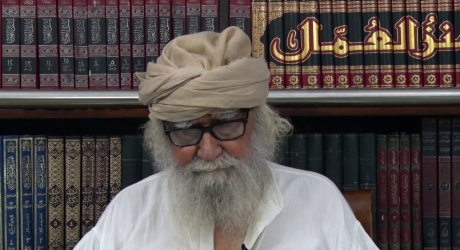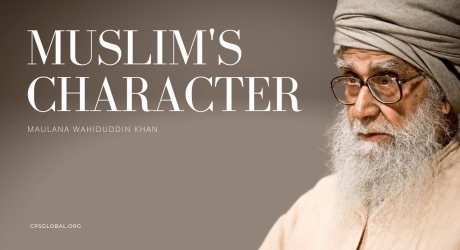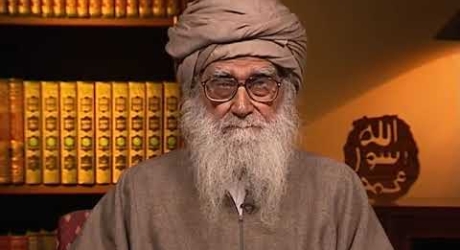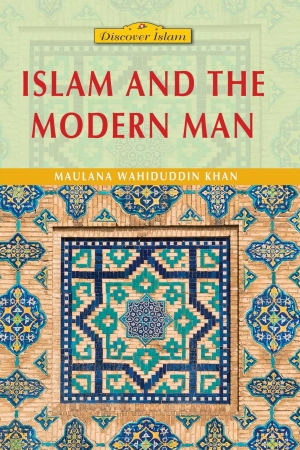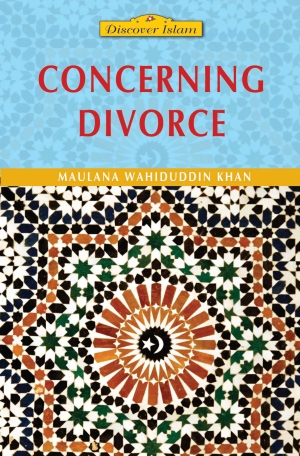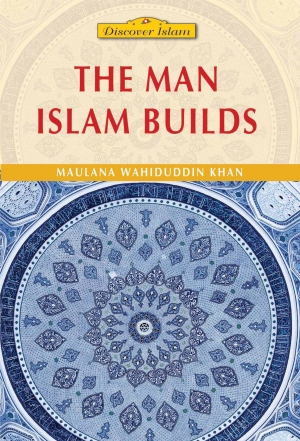Islam makes a man realise that God Almighty is omnipresent and omniscient, so he feels that for all his words and deeds—even intentions, he is accountable before Him. Moreover, after death, he will have to face the heavenly court of justice, where the whole record of his life will be examined. And then, according to its verdict, he will be sent either to eternal hell or eternal Heaven. This feeling surging within him is so powerful that it shakes the entire human personality. The consciousness of the presence of God makes one accountable to God Almighty. By his inner compulsion, he becomes a man of character and a staunch believer.
The man Islam aims to build is one in whom a two-fold activity is set in motion simultaneously. On the one hand, there is a strengthening of the moral fibre by which his personality assumes its permanent shape, and on the other, there is a broadening of his intellectual horizons through dawah activity, conveying the Divine Message to all humanity. It can be said that faith (iman) and the call to God (dawah) are two basic levels of Islam. If iman is a superior ideology, dawah is a superior course of action. Iman purifies one's mind and soul, while dawah imbues one's personality with sublime probity. One who adopts Islam as a universal mission, in both the ideological and practical sense, is morally activated to the maximum possible extent and this course, slowly but surely, leads him to reach the highest pinnacle of humanity.
Featured Articles
Featured Videos
FAQs
In chapter 38 of the Quran, the prophet David is thus addressed by God: “Rule with justice among men and do not yield to lust (intense desire), lest it should turn you away from God’s path.” (38: 26)
God has laid down a straight path of virtue for man and then implanted the sense of this in human nature. If man were to trust his instincts and follow this silent guidance, he would never become prey to deviation. He would unerringly follow this straight thoroughfare of life until he reached his final destination.
There is only one thing that leads man astray from this path of divine guidance, and that is his own unquenchable desire. Lust causes man to waver at every turn in life; the wise man is one who does not allow himself to be swayed by its influence. One who succumbs to his own desires will necessarily fall by the wayside, his ultimate fate being abasement and destruction.
Human desires lead man astray in many ways. At times they lure him away from the deeper realities of life towards the false glitter of the world. At times momentary gain leads him far from the path of permanent gain. At times, man allows himself to be provoked by matters of sheer prejudice and, giving no forethought to the outcome, involves himself in such confrontations as lead to serious hostilities. In the end, it is he himself who suffers the maximum losses. To lead a successful life, man must keep his negative urges under control, rather than be controlled by them, for his own insatiability is his greatest enemy. The better way of life, as opposed to one guided by desire, is that based on a sound code of ethics. Far from falling a victim to his baser self, man should conform to a set of high human principles. He should be governed in thought, word and deed not by the mere urge to pursue selfish aims, but by a deep and innate scrupulosity.
Source: Al Risala May-June 1999
The desired relationship between man and God is that of a living relationship. This relation exists at all times and at every moment through the remembrance of God, prayer, worship, contemplation, reflection, and drawing lessons from God’s signs, etc. Man asks God for blessings at every moment and he receives them from God at every moment. Just as man is dependent on God for his existence, so is he totally dependent on God for his survival. If God ceased to sustain him even for a moment, man would be destroyed. In accordance with religious belief, God is not only the Creator but also the Sustainer. That being so, the theory of evolution is, in effect, a negation rather than an affirmation of God.
Source: Spirit of Islam May 2013
The Prophet’s manner of speech should act as a model for all believers. Who is a believer? He is one who fears God, and knows that the angels are recording his every word. Aware of the fact that he will have to answer to God for everything he says, he assumes a deep sense of responsibility. When he speaks, it is as if he is addressing a divine and angelic company. He is restrained in his speech; he thinks before he speaks; he weighs his words carefully before presenting his ideas to his listeners. Fear of God takes away his loquacity. Fear of the Hereafter, and of being answerable to God for his words, dampen his oratorical zeal.
Source: Spirit of Islam January 2021



